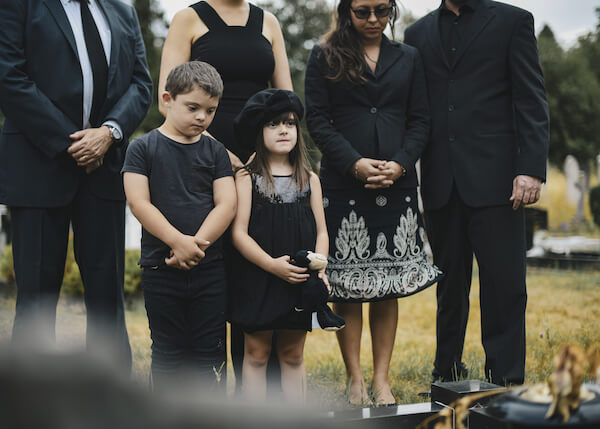
How to Tell a Child about a Loved One’s Death
Discussing the death of a loved one with a child can be incredibly difficult. Often we fear that the child may not understand the matter or that we will say the wrong thing and cause unnecessary trauma. However, rest assured that speaking honestly and supporting them through this difficult time can be the best option.
Here are our tips for speaking to children about the death of a loved one.
Be Clear and Honest
Children are inquisitive, especially when they are quite young and still learning about what death means. Depending on their age, they’ll probably ask questions, and it’s important that you answer them honestly and clearly. Avoid using euphemisms such as ‘gone to sleep’ or ‘gone away’ as this can often be confusing for them.
Don’t tell them not to worry or be sad
Telling children not to express their emotions, whether anger, sadness or worry, is not healthy. In fact, you should be encouraging them to talk about their feelings. If the child doesn’t appear to be saddened by the news, be aware that they may be processing the news or struggling to understand. Ask them if they need any more clarity on what's happened and give them plenty of reassurance.
Don’t be afraid to show emotion
It’s ok to cry in front of children, as it shows them how you feel about the situation. Sometimes, showing them that you are sad helps them to understand their own feelings about the passing of their loved one. If they ask why you’re crying, explaining in plain language that you are sad about the loss and that people cry for lots of different reasons. You may also want to reassure them that not crying is also ok as people react to their emotions differently.

Encourage questions
Children, especially those of primary school age or younger, are very inquisitive. It’s important that you allow them to ask questions, even if they are difficult to answer. You may be worried that you’ll say the wrong thing or your answer will make them anxious. If that’s the case, try asking them ‘what do you think?’ or ‘how does that make you feel?’ as a way of understanding the context of their question.
Encourage discussion about the deceased
While you might think to talk about the person who has died will upset and make the child anxious; allowing them to express their emotions by telling their side of the story and talking about their memories is healthy during bereavement. It’s important to remember that the child had a relationship with the deceased too and will want to talk about them.
As well as this, listening to them talk about the deceased can allow you to make sure they understand the situation. That way you can cover any misunderstanding sooner and support them through the bereavement process more effectively. If the child would prefer not to talk, that is also ok, but just ensure that they know that you are someone who they can confide in and regularly encourage conversation where appropriate. You can set up a memorial page as somewhere where all close family and friends of the deceased can express their grief and post tributes.
After you’ve told your family and friends about your loved ones passing, you’ll need to begin planning a funeral or ceremony of remembrance.